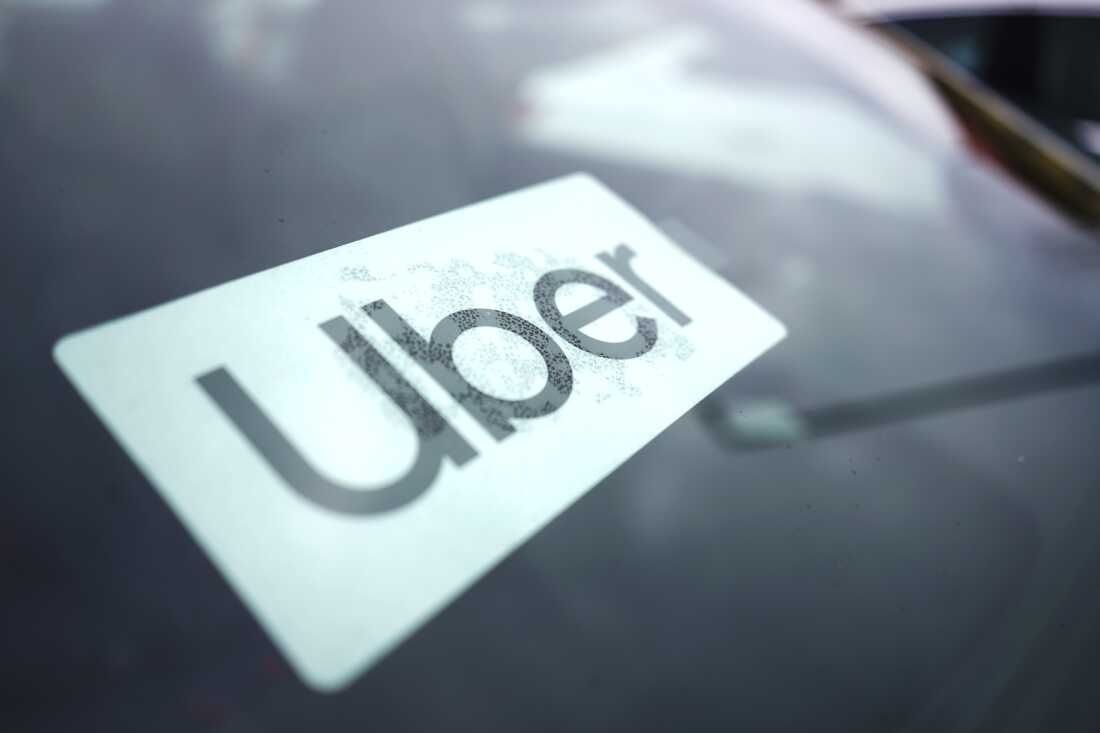A court blocks a couple from suing Uber over a car accident over Uber Eats' terms and conditions.
A New Jersey couple can't sue Uber for a life-changing car accident because their daughter previously agreed to the terms of the Uber It's app, a state appeals court has ruled.
John and Georgia McGinty — a Mercer County couple both in their 50s — filed a lawsuit against the ride-sharing company in February 2023, nearly a year after suffering “severe physical, emotional and financial harm” when an Uber they were riding crashed into another. in the car, According to court filings.
Their attorney, Mike Shapiro, said, “There are physical scars, emotional scars, and I don't think they'll ever be able to go back to their full potential.”
Uber filed a motion to dismiss the complaint and compel arbitration, which would require the parties to settle their differences out of court — clearly benefiting the company by reducing legal costs and keeping the proceedings private.

It argued that Georgia McGinty, a longtime customer of Uber Rides and Uber Eats, had agreed to arbitrate any disputes with the company when she signed off on language in the app's terms of use on three occasions over the years.
The McGintys fought back, saying it was actually their daughter — who was and remains — who agreed to the terms when she recently used Georgia's phone to order food on their behalf. A lower court initially sided with the couple, denying Uber's motion to compel arbitration in November 2023.
Uber appealed the decision and an appeals court ruled in its favor late last month.
“We hold that the arbitration provision in the contract under review, which Georgia, or her minor daughter, agreed to when using her cell phone, is valid and enforceable,” the three-judge panel wrote in September. “Therefore, we reverse the portion of the order denying arbitration of the claims against Uber.”
Shapiro told NPR that the couple “100%” wants to continue their case and is considering their options, including asking the trial court to reconsider or possibly trying to bring it to the New Jersey Supreme Court.
“Uber has been extremely secretive in their willingness to open the same cabinets they're forcing McGuinty to open and peer into,” Shapiro said. “It's unfortunate that this is how they continue to do business because this is really something that deprives millions of Americans and people around the world of their hard-fought rights.”
The case brings to mind another recent example of what Shapiro describes as an “infinite arbitration agreement,” where Disney tried to block a man's wrongful death lawsuit On behalf of his wife — who died after an allergic reaction at a Disney World restaurant — because she signed up for a trial of Disney+. After considerable media coverage and outcry the company backed off its push for arbitration.
Asked for comment about the McGuinty case, Uber pointed to citations from court decisions supporting that Georgia had agreed to its terms of use — including its arbitration agreement — on multiple occasions.
“Although the plaintiffs continued to tell the press that it was their daughter who ordered Uber Eats and accepted the terms of use, it is noteworthy that in court they could only 'guess' that it was but could not recall whether it was 'their daughter'. independently ordered food or if Georgia helped,” the company added.
An Uber eats dinner, a 'T-bone' car accident and chronic pain
Georgia McGinty originally signed up for an Uber account in 2015 and agreed to terms of use for her account twice more in April 2021 and January 2022, according to court filings.
The most recent terms include a clause about any dispute arising between McGuinty and Uber — including auto accidents or personal injury — being resolved through binding arbitration and “not in a court of law.”
But the McGintys say it was their daughter who clicked the “confirm” button in early 2022, when she used her mother's phone to order dinner through Uber Eats for the family as they packed for an upcoming ski trip.
Her parents said they did not remember seeing the terms of the “clickbox” pop-up on the screen or whether they helped their daughter with the order. They asked him to order from a certain restaurant and “hung up” on Georgia's phone to monitor delivery updates after placing them.
“Georgia argued that she and John never had an opportunity to see the pop-up, and that it was their daughter who clicked on it, either intentionally or unintentionally, while observing the delivery,” the court opinion read.
The appeals court, however, held that Georgia agreed to the arbitration provision, “by herself or through her daughter using her Uber account.”

Two months after that, in March 2022, the couple was riding in the back seat of an Uber ride-share when their driver ran a red light and T-boned another car, causing extensive damage.
John suffered a cracked sternum and severe fractures to his left arm and wrist, eventually had a bone graft and continued to experience “loss of use and sensation in his left wrist,” according to court documents.
Georgia suffered cervical and lumbar spine fractures, rib fractures, a herniated hernia, traumatic injuries to her abdominal wall, pelvic floor and other physical injuries. She was forced to undergo numerous surgeries and invasive procedures, and did not return to her job as a matrimonial attorney until April 2023 – a year after the accident.
Medical bills from surgeries and doctor visits piled up, and Shapiro said the couple's auto insurance couldn't cover them because they were injured while riding in an Uber.
They have sued Uber to try to get compensation for medical and child care expenses and actual financial damages, including in Georgia, and Georgia has “definitely stopped short of enforcing its law.”
“Also, the pain and suffering and degradation of going through this whole period and now living with real lifelong consequences,” he added.
Some big questions: Was the language correct and who actually agreed to it?

Shapiro said Uber and the driver's lawyers were initially collaborative, and all of their experts “played well together” when analyzing cars, evaluating data and sharing medical records.
But he says several months into the lawsuit, after McGuinty gave Uber all the discovery material it wanted, the company suddenly moved to go to arbitration. At that point, Shapiro said, Uber didn't provide the material his team wanted, particularly as it related to how it collects and stores “clickbox” data.
Before the lower court even addressed those concerns, he says, it ruled that the arbitration agreement was invalid because the language was inappropriate.

The original court found that Uber had “failed[ed] Clearly and unequivocally informing the plaintiff of his waiver of the right to pursue his claims in a judicial forum, and the updated agreement language “lacks any specificity as to what the resolution would look like or what the alternative to such a resolution might be,” court records show.
“Basically, [the judge] saying, 'Look, there's no magic word needed, but you can't have any of the language used to enforce these arbitration agreements,'” Shapiro explains, pointing to examples like waivers, rights, juries and lawsuits. “The way I describe it, you may not need the magic word but you need to speak the same language.”
In their petition, Uber countered that Georgia formed “an enforceable arbitration with Uber” and “cannot avoid its agreement with Uber by claiming that her daughter agreed to the December terms on her behalf.”
The appeals court, after analyzing multiple contract languages and examining precedent, agreed with the company. The judges said they were satisfied that “there is no ambiguity when Georgia agreed to resolve disputes related to Uber's services by binding arbitration 'and not in a court of law.'”
And they said McGuinty's statements about being busy with packing and their daughter being “able” to order food frequently, “supports daughter Georgia's knowing interference.”
Shapiro said the “most unfair” aspect of the appeals court's ruling is that it essentially skipped Uber the process it needed to provide its clients with the technical information they requested about how those contractual pop-ups work.
The couple's lawyer warned of a 'slippery slope'
Shapiro is concerned not only about his clients, but also about the countless other people who could be affected by such an arbitration agreement in previously impossible circumstances.
“It's amazing to me that these things are going to go,” he says. “If you shop at a store and you are a member of their loyalty program, you agree to arbitration. If you're on the street and you're hit by an Uber, even though you're not currently in it, but you're an existing Uber customer, is that … the extent of the hit that they want to make their deal with?”
Shapiro noted that his law firm represented a different, Spanish-speaking client whose Uber app was set up in Spanish — but had to sign the terms and conditions because they appeared in English, which he sees as a sign the company is trying to push boundaries.

He says that so far, he has only seen cases involving affiliates and subsidiaries, where a client signs an arbitration with a business without knowing that others are involved.
But this Uber case, and the recent Disney suit, suggest that companies are increasingly trying to get “completely different aspects of their enterprise” subject to arbitration clauses.
He is careful not to accuse the court of complicity. But he worries that such rulings are “evidence of a kind of slippery slope in action, that companies like Uber are pushing the envelope.”
